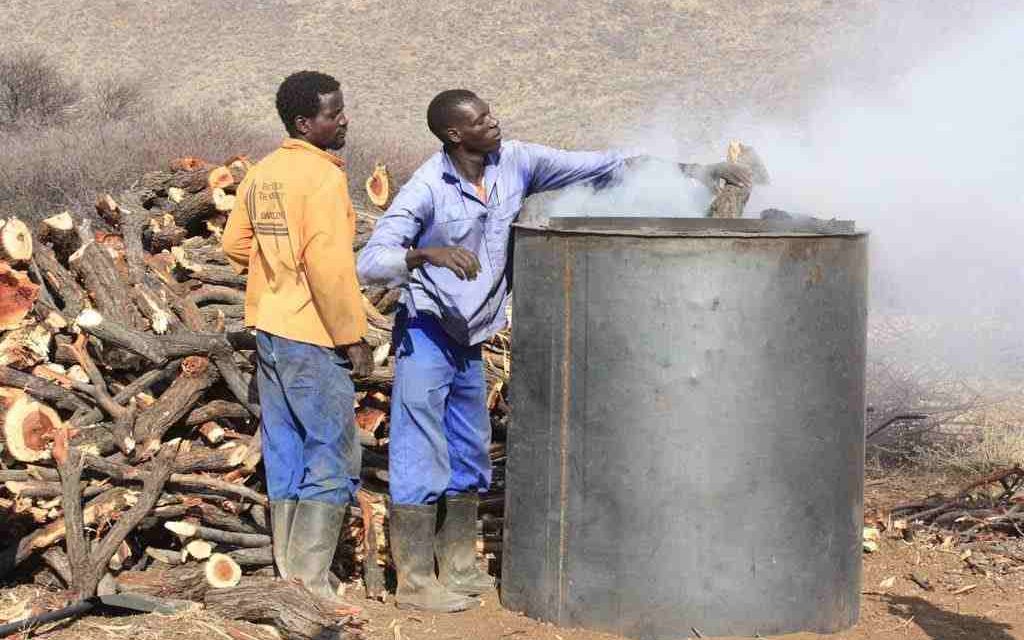
Charcoal exports contributed N$4.1 billion to forex reserves since 2009

By Freeman Ya Ngulu.
The Namibian economy is benefiting greatly from biomass utilisation. The production of charcoal in particular has increased significantly and resulted in much-needed direct and indirect job opportunities as well as foreign exchange earnings.
This is according to a policy brief is based on a research paper by Klaus Schade, an independent economic expert based in Windhoek for the Bush Control and Biomass Utilisation Project (BCBU) funded by the Deutsche Gesellschaft für Internationale Zusammenarbeit (GIZ) and its implementing partners, the Ministry of Environment, Forestry and Tourism, and the Forest Stewardship Council (FSC).
Schade has been involved in socio-economic research and formulation of various policies and sector strategies in Namibia for more than 20 years. His main areas include macro-economic and fiscal policy analysis, regional integration and international trade and poverty analysis. He served as a member of the presidential High-level Panel on the Namibian Economy from March 2019 to March 2020.
The manufacturing sector appears to be one of the main beneficiaries of both charcoal production and bush-based animal feed. Namibian bush grows slow and hence the wood is harder. This makes Namibian wood ideal for charcoal production.
Most machinery built elsewhere and imported is suitable only for softer wood and does not work effectively or does not last long under Namibian conditions. Domestic manufacturing companies have invested in research and development to produce new machinery and equipment that is designed for local conditions.
According to the Strategic Environmental Assessment of Large-Scale Bush Thinning and Value Addition Activities, encroachment reduces the carrying capacity of rangeland. As a result, the value of farmland as well as the value derived from it in terms of beef production, are declining. A study in 2015 estimated that the area affected by bush encroachment is more than 45 million hectare, with a resultant loss of N$2.7 billion annually. Adjusted for inflation, the loss would amount to N$3.4 billion annually in 2020 prices.
Namibia’s biomass offers further opportunities for product diversification and value addition. This includes the production of biochar for soil enrichment and or as animal fodder supplement, granules for water filters, and as specialised building material. Research is currently done to explore these and other opportunities.











































